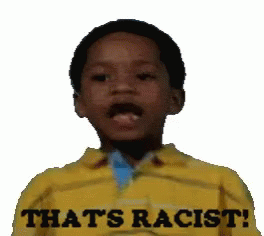Post by Odysseus on Aug 31, 2020 8:10:14 GMT
In recent weeks, Trump has telegraphed that racialized wedge issues are again a central element of his political strategy and seems to see a consistent political advantage in overt or dog-whistle racist appeals and the condemnation they invariably draw. For example, Trump has promised to protect “the suburban housewife” from lower-income neighbors; threatened to veto a bill that contained a provision to rename military bases named for Confederate leaders; waved off the problem of Black Americans being disproportionately killed by police by saying “so are white people;” focused his campaign advertising on crime and protests; and repeated baseless, racist allegations about Democratic vice presidential nominee Sen. Kamala Harris.
In using racial appeals, the president is the latest in a generations-long line of politicians tapping into a dangerous vein in American politics. But is there sometimes a political logic to such appeals? They didn’t work in 2018. Democrats would go on to take control of the U.S. House and a bunch of governorships.1 That was a midterm election, though, and this is a contest for the presidency. So, are racialized wedge issues likely to work to the GOP’s advantage in November?
In using racial appeals, the president is the latest in a generations-long line of politicians tapping into a dangerous vein in American politics. But is there sometimes a political logic to such appeals? They didn’t work in 2018. Democrats would go on to take control of the U.S. House and a bunch of governorships.1 That was a midterm election, though, and this is a contest for the presidency. So, are racialized wedge issues likely to work to the GOP’s advantage in November?
...
It’s surely too soon to count Trump out. But if Trump does win reelection in November, it’s very likely to be due to gains with white voters lower in prejudice or with nonwhite voters. Using racist appeals and racialized wedge issues won him support most clearly in the 2016 GOP primary. But there are key differences between that contest and the 2020 general election — differences that may make racial appeals less impactful this year. And judging from the RNC’s periodic efforts to counter the charge that Trump is racially divisive, some of its planners seem to agree.

 There has NEVER been any evidence of that, at anytime in his life. Your problem .. is that you believe the lying liberal news networks and all others who hate Trump just for the sake of hating him, because ... it is considered 'in liberal/leftist vogue' to hate him for whatever invented reason!
There has NEVER been any evidence of that, at anytime in his life. Your problem .. is that you believe the lying liberal news networks and all others who hate Trump just for the sake of hating him, because ... it is considered 'in liberal/leftist vogue' to hate him for whatever invented reason!

